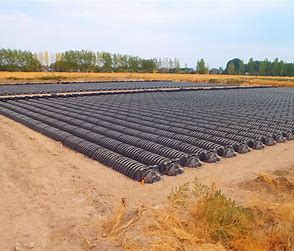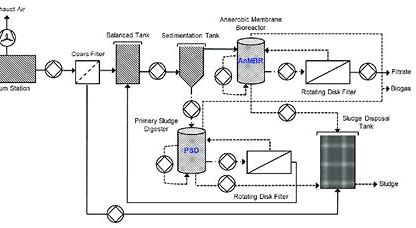
Decentralized Wastewater Treatment Systems: Advantages, Components, and Future Outlook
Introduction
Decentralized wastewater treatment systems (DWWTS) have gained significant attention in recent years due to their environmental impact, cost-effectiveness, and sustainability. This article explores the origins of wastewater treatment systems, the emergence of decentralized systems, and the importance and relevance of this topic. With a focus on SEO optimization, this article delves into the advantages, components, case studies, current trends, challenges, and future outlooks associated with decentralized wastewater treatment systems.
Historical Background
Wastewater treatment systems have a long history, with origins dating back to ancient civilizations. However, it was not until the industrial revolution that centralized wastewater treatment systems became prevalent. The need for efficient and effective treatment led to the development of large-scale treatment plants. In recent decades, decentralized wastewater treatment systems have emerged as a viable alternative, offering numerous advantages over centralized systems.
Key Concepts and Definitions
To understand decentralized wastewater treatment systems, it is crucial to define and comprehend their purpose and components. DWWTS involve various processes and components, such as septic systems and advanced treatment units. Effluent quality standards and regulations play a key role in ensuring the effectiveness of decentralized systems. Additionally, key stakeholders, including homeowners, regulators, engineers, and operators, contribute to the successful implementation and operation of these systems.

Advantages of Decentralized Wastewater Treatment Systems
Reducing strain on centralized infrastructure
Decentralized systems help alleviate the burden on centralized infrastructure, especially in areas with limited capacity. By treating wastewater closer to its source, these systems reduce the load on aging and overburdened infrastructure, minimizing the risk of failures and costly repairs.
Cost-effectiveness and lower maintenance requirements
Compared to centralized systems, decentralized wastewater treatment systems often require less capital investment and maintenance. They eliminate the need for extensive pipe networks and large-scale treatment plants, resulting in reduced operational costs and lower maintenance requirements.
Enhanced treatment efficiency and reclaimed water potential
Decentralized systems can implement advanced treatment technologies that may not be feasible in centralized plants. This allows for higher treatment efficiency, ensuring better water quality and even the potential for water reclamation and reuse, promoting sustainability.
Types and Components of Decentralized Wastewater Treatment Systems
There are various types of decentralized wastewater treatment systems, including septic systems, constructed wetlands, and recirculating media filters. Each system comprises different components, such as septic tanks, distribution systems, and treatment units. Design considerations, including soil characteristics and space limitations, must be accounted for when implementing these systems.

Case Studies or Examples
Successful implementation of decentralized wastewater treatment systems in [location]
In [location], decentralized wastewater treatment systems have been successfully implemented, overcoming challenges and achieving notable benefits. Solutions to obstacles faced during implementation are explored, along with the positive outcomes achieved through decentralized systems.
Transition from centralized to decentralized wastewater treatment systems
A case study highlighting a community’s transition from centralized to decentralized systems is presented. The reasons for this switch, lessons learned, and community feedback are discussed, shedding light on the advantages and challenges associated with such a transition.
Current Trends or Developments
The field of decentralized wastewater treatment systems continually evolves with innovative technologies and treatment processes. The integration of decentralized systems in both urban and rural areas is expanding, aiming to address specific challenges and achieve optimal performance. Developing countries are also increasingly adopting decentralized systems, benefiting from their scalability and adaptability. Additionally, research findings on the performance and efficiency of decentralized systems contribute to their continuous improvement.
Challenges or Controversies
Despite the advantages, decentralized wastewater treatment systems face challenges and controversies. Limited awareness and understanding among the general public hinder their widespread adoption. Regulatory challenges and inconsistencies create obstacles in the implementation and operation of these systems. Maintenance and operation requirements pose additional challenges, as proper management is essential for efficient and effective treatment. Concerns over potential health and environmental risks associated with decentralized systems also fuel debates.

Future Outlook
The potential for widespread adoption of decentralized wastewater treatment systems is promising. The integration of smart technologies and monitoring systems will enhance their performance and reliability. Furthermore, the impact of climate change on system design and performance will shape future developments. Collaborative efforts between stakeholders, including homeowners, regulators, engineers, and operators, are crucial to address challenges and optimize system performance.
Conclusion
Decentralized wastewater treatment systems offer numerous advantages over centralized systems, such as reducing strain on infrastructure, cost-effectiveness, and enhanced treatment efficiency. By exploring the components, case studies, current trends, challenges, and future outlooks associated with decentralized systems, this article emphasizes their importance and potential. It concludes with a call to action for further research and encourages readers to explore the references provided for a deeper understanding of this topic.




